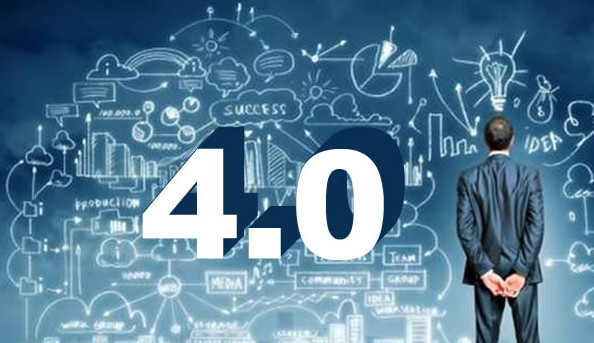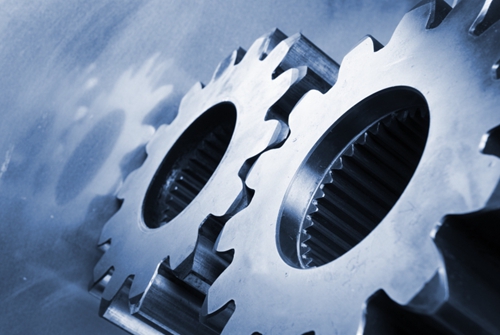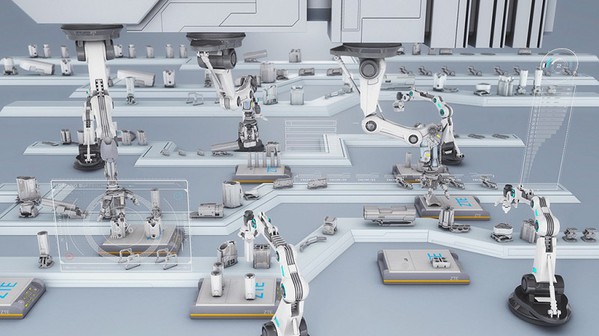
News Center
Centre de produit
Produit recommandation
News Center
Emplacementï¼Page d'accueil >> News Center
Read All Aspects of Smart Manufacturing
The background of smart manufacturing?
In the industrial 3.0 era, the real economy and the virtual economy have become disconnected. The development of Internet technology has spawned a virtual economy that transcends entities and accumulates wealth faster. The real economy dominated by manufacturing is difficult to compete with it, leading to a wave of âde-industrializationâ in developed countries. However, the shrinking of the real economy has finally triggered a global financial crisis, which has caused the world to be harmed to varying degrees. Therefore, the revitalization of the industry has become an important means for countries to get rid of the economic crisis.
With the emergence of the concept of Industry 4.0, the manufacturing industry has set off a new round of industrial revolution sweeping the world, and the industrial upgrading with intelligent manufacturing technology has become synonymous with âadvancedâ.

Labor-intensive and resource-intensive traditional manufacturing industries rely mainly on increasing labor and resource inputs to increase productivity without the need for advanced manufacturing techniques. However, with the increase in labor costs a high consumption of energy, the competitiveness of traditional manufacturing industries continues to decline.
In order to reduce costs, these two manufacturing companies tend to shift factories and production lines to developing countries in order to obtain cheaper labor and closer to the source of resources. The wave of âde-industrializationâ in developed countries is caused by the transfer of manufacturing industries overseas. However, this development model is difficult to withstand the impact of the Internet economy and is destined to be replaced by an unmanned, digital production model dominated by smart manufacturing.
The automated production line replaces labor with intelligent robots, which not only greatly increases production efficiency, but also greatly reduces production costs and energy consumption. As a result, manufacturing companies have shifted from labor-intensive, resource-intensive development models to technology-intensive development models. It is no longer necessary to transfer factories and production lines to overseas developing countries, but to leave them in a country with a better industrial system and a better economic environment. Development bottlenecks such as âde-industrializationâ and âmanufacturing hollowing outâ will also be solved.
The core of intelligent manufacturing?
The core of developing intelligent manufacturing is to improve the production efficiency of enterprises and expand the value-added space of enterprises, mainly in the following aspects:
The first is to shorten the development cycle of the product. Through intelligent manufacturing, products can be shortened from R&D to listing, from order to delivery. Reduced downtime for machines and plants through remote monitoring and predictive maintenance, and production downtime is reduced.
The second is to increase the flexibility of production. Through the use of digital, interconnected and virtual process planning, intelligent manufacturing opens the door to large-scale mass-customized production and even individualized small-volume production.
The third is to create new values. By developing smart manufacturing, companies will shift from traditional âproduct-centricâ to âintegrated services-centricâ, focusing on solutions and systems, leveraging services to deliver new value throughout the product lifecycle.

Smart Manufacturing 5 Steps:
01 Production equipment networked to realize the workshop "Internet of Things"
Intelligent, interactive, seamless connectivity between people, devices, and systems.
02 Production data visualization, using big data analysis for production decisions
Use the big data generated during the production process, analyze the entire production process, understand each link, and optimize energy consumption in the production process.
03 Production documents are paperless, enabling efficient, green manufacturing
Significantly reduce manual transfer and circulation based on paper documents, thus eliminating file and data loss, further improving production preparation efficiency and production efficiency.
04 The production process is transparent, the "neural" system of the smart factory
Provide basic information on production activities in a two-way interaction between the enterprise and the supply chain, so that planning, production, and resources work closely together to ensure that decision makers and managers at all levels can grasp the changes in the production site in the shortest possible time. Make accurate judgments and formulate quick response measures to ensure that production plans are corrected reasonably and quickly, production processes are smooth, resources are fully and effectively utilized, and production efficiency is maximized.
05 The production site is unmanned and truly "nobody" factory
In the case of automatic production of uninterrupted units, the management of production tasks is prioritized and suspended, and the production status in the management unit is remotely viewed. If problems are encountered in production, once the solution is resolved, the automatic production is resumed immediately, and the entire production process does not require manual participation. Improve work efficiency.

Key technologies and advantages of intelligent manufacturing?
To achieve the transformation of manufacturing to "intelligence", the current key technologies are: Internet of Things technology, big data technology, cloud computing technology. The advantages of intelligent manufacturing are mainly in precision, automation, graphics, multimedia, and networking.
The future of intelligent manufacturing?
Mainly around the "green" and "intelligence", a modern manufacturing model that takes into account environmental issues and resource efficiency.

- Telï¼4001518418
- Faxï¼sales-sz@finern.com
- Addrï¼185B, rue Chexin, district Songjiang, Shanghai, Chine
Copyright ©2015 FINERN Group.Tous droits réservés.
Support techniqueï¼YUANPAI
